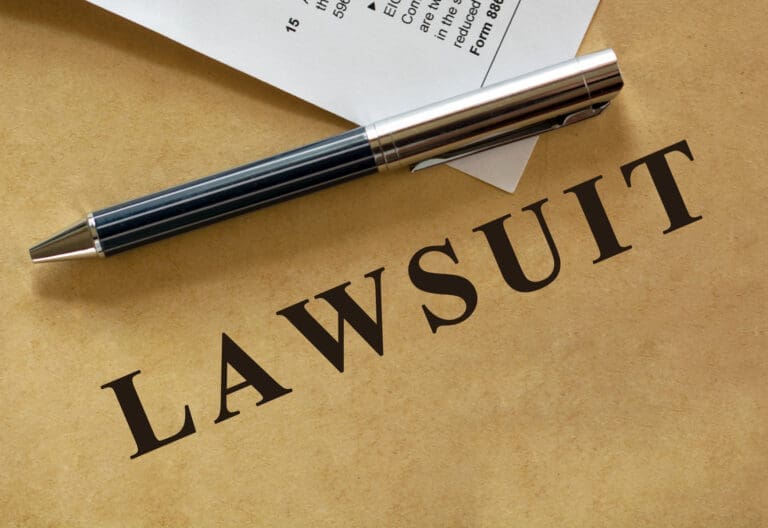En Bankruptcy Appellate Panel (BAP) represents a critical juncture in the bankruptcy appellate process, offering a specialized forum for litigants seeking to challenge decisions made by bankruptcy courts. Established under the auspices of 28 U.S.C. § 158(b), BAPs serve as an alternative to district courts for appellate review, available in circuits that have opted to create such panels. Composed of three bankruptcy judges, these panels provide expertise and a focused approach to appeals in bankruptcy matters, from debt discharge disputes to the intricacies of reorganization plans.
The Strategic Importance of BAPs in the Bankruptcy Appellate Process
Opting for an appeal to a Bankruptcy Appellate Panel involves a strategic assessment of the panel’s specialized understanding of bankruptcy law compared to the broader jurisdictional purview of district courts. This choice can significantly impact the appeal’s trajectory, potentially influencing the speed and outcome of the appellate review. The specialized nature of BAPs means that the judges are more intimately familiar with the complexities and nuances of bankruptcy cases, which can be advantageous for appellants seeking a nuanced interpretation of bankruptcy law.
Jurisdiction and Scope of BAPs
The jurisdiction of BAPs is explicitly delineated to cover appeals from bankruptcy court decisions within their respective circuits that have authorized their establishment. This includes a wide array of disputes, from the confirmation of reorganization plans under Chapter 11 to the adjudication of exemption disputes under Chapter 7. However, not all decisions are immediately appealable; some may require leave from the court, underscoring the need for appellants to understand the procedural landscape thoroughly.
Navegar por el proceso de recurso
Initiating an appeal to a Bankruptcy Appellate Panel entails a series of procedural steps, beginning with the timely filing of a notice of appeal. This document, which must be filed within 14 days of the bankruptcy court’s decision, is crucial to preserving the right to appeal. Subsequently, appellants and appellees engage in the submission of briefs, laying out their arguments, legal authorities, and evidence to support their positions. Oral arguments may also be scheduled, providing an opportunity for direct engagement with the panel judges.
The Impact of BAP Decisions on Bankruptcy Law and Practice
Decisions rendered by BAPs contribute significantly to the development of bankruptcy law, often setting precedents that guide bankruptcy practice across the United States. By interpreting statutory provisions, resolving ambiguities in the law, and addressing novel legal issues, BAPs play a formative role in shaping the contours of bankruptcy jurisprudence. Their decisions are not only binding on the parties involved but also serve as persuasive authority for bankruptcy courts and appellate panels in other circuits.
Practical Considerations for Appellants
For parties considering an appeal to a BAP, several practical considerations are paramount. These include evaluating the merits of the appeal, considering the panel’s potential perspective on the issues at hand, and preparing for the possibility of further appeal to the Court of Appeals or even the Supreme Court. Additionally, the costs associated with an appeal, both in terms of financial expenditure and time, must be carefully weighed against the potential benefits of a successful appeal.
Conclusión
En Bankruptcy Appellate Panel system stands as a testament to the specialized nature of bankruptcy law, offering a tailored appellate forum that balances expertise, efficiency, and accessibility. For practitioners and litigants within the bankruptcy realm, understanding the operation, advantages, and strategic implications of BAPs is essential for effective legal navigation and advocacy. As bankruptcy law continues to evolve, the role of BAPs in shaping its development remains undeniably significant, underscoring their value in the broader legal landscape.
En Bankruptcy Appellate Panel (BAP) plays a pivotal role in the United States’ bankruptcy law framework, serving as a specialized judicial body designated to hear appeals from bankruptcy courts. These panels, authorized under 28 U.S.C. § 158(b), are convened in circuits where district judges have approved their operation, offering an alternative appellate forum to district courts. BAPs typically comprise three-judge panels made up of bankruptcy judges drawn from within the circuit, ensuring that no judge hears appeals from their own district.
BAPs were first introduced as part of the Bankruptcy Reform Act of 1978, enabling federal judicial circuits to establish these panels to handle bankruptcy appeals more efficiently. Notably, the Ninth Circuit was among the first to establish a BAP in 1979, followed by the First Circuit in 1980. However, the constitutionality of BAPs was questioned following the Supreme Court’s decision in Northern Pipeline Co. v. Marathon Pipe Line Co., leading to varied responses across circuits. The First Circuit disbanded its BAP post-decision, citing emergency rules, while the Ninth Circuit maintained its panel, arguing its constitutionality under appellate supervision. The Bankruptcy Reform Act of 1994 later amended the governing statute, mandating circuits to establish a BAP unless judicial resources were insufficient or if it would cause undue delay or increase costs for parties. As a result, the First Circuit reestablished its BAP in 1996, along with new panels in the Second, Sixth, Eighth, and Tenth Circuits.
Each BAP operates under its own local rules in addition to the Federal Rules of Bankruptcy Procedure and Federal Rules of Appellate Procedure. Parties retain the option to have their appeal heard by a district court instead, by filing an election to transfer the case. Appeals from BAP decisions are directed to the court of appeals for the respective circuit.
As of the latest information, five circuits have established BAPs, with the district judges in all districts within the First, Eighth, Ninth, and Tenth Circuits authorizing BAP appeals. The Sixth Circuit’s BAP, for instance, offers detailed procedural guidelines, from motion practice to oral argument protocols, ensuring a structured and accessible appellate process for parties involved in bankruptcy cases.
For more detailed information on the Bankruptcy Appellate Panel, you can visit the official websites of the Ninth Circuit and Sixth Circuit, which provide insights into their operations, judges, and procedures:
Divulgación: Generative AI creó el artículo









